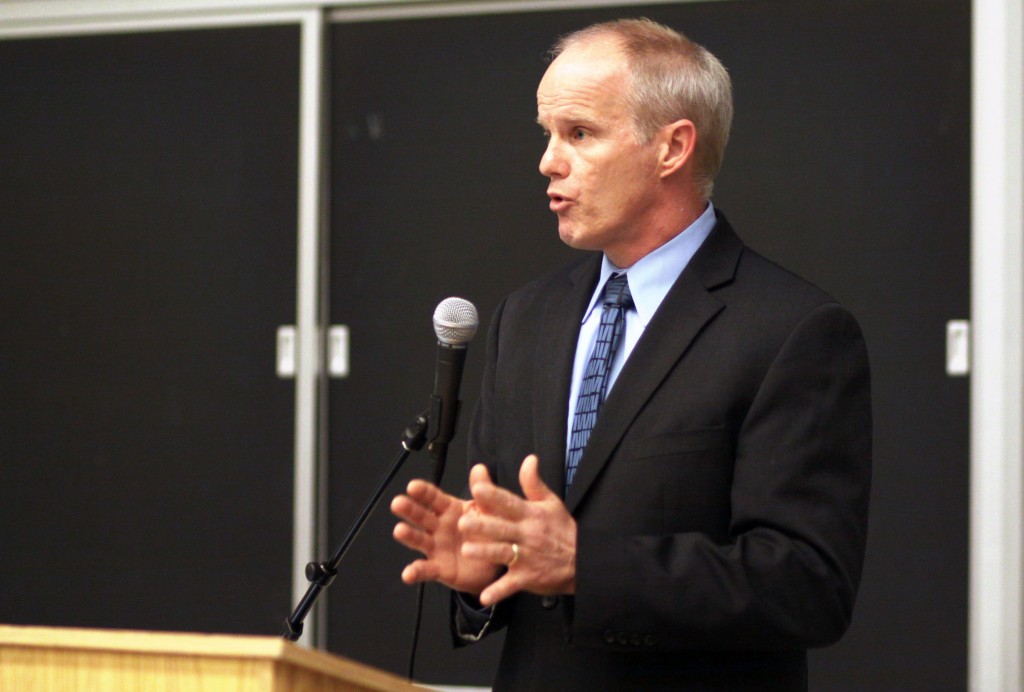
University President Harvey Stenger has asked faculty, staff, students and alumni to help him build a “Road Map” for Binghamton University.
In an email sent on March 29, Stenger included a link to a video where he encouraged BU community members to join teams focused on different aspects of the University. The teams, which will be filled out through an open nomination process, will concern 10 topics: student success, philanthropy, diversity, creative activities and research, infrastructure, community partnerships, rankings and reputation, international activities, distance education and pedagogy.
Stenger contributed to similar planning processes at other universities and said if done correctly, the process can successfully advance a university’s mission.
“To adapt the concept to the characteristics of Binghamton University, I have worked with the deans and vice presidents in several meetings this spring to build a Road Map process that best fits us,” Stenger wrote in an email.
According to Stenger, over the next five years the University plans to increase enrollment by 2,000 students, increase faculty by at least 150 members and increase staff by at least 175.
“The Road Map process will help us implement this growth,” he said. “I anticipate that the Road Map will point us in the direction of doing things such as adding new programs, finding new ways for students to be successful and improving our currently offered programs.”
Stenger said that for the past three months, he has asked hundreds of people what BU should become in the years ahead.
“The results of these conversations will help me understand and describe what the premier university will be in the 21st century,” he said. “I will be listening closely to what students tell me of their experiences to build on what we do well and address what we can improve.”
Jeanette Russo, a junior majoring in psychology, said Stenger’s Road Map is an essential part in helping to improve the University.
“President Stenger’s plan to enhance the academic and extracurricular excellence at Binghamton is inspiring,” Russo said. “I think it’s great he’s working alongside students, faculty and staff to execute his plan.”
Stenger said the teams will be made up of a diverse group of people from different areas of campus and the community.
“Each team will be given a charge to develop initiatives that will make advancements in their topic,” Stenger said. “For example the team assigned to student success will address how we can improve the job and graduate school placements of our students. I will be writing these charges this summer and present them to the teams at the start of the fall semester.”
Andrew Bryant, a senior majoring in political science, said Stenger’s strategy is important because it includes everyone in the future of BU.
“Through these committees, I believe that the maximum flow of ideas will take place, that gives the best edge for us to move up in the rankings,” Bryant said. “Specifically, having students involved is an excellent idea since any changes that are enacted will affect us the most.”
Ken Barretto, a sophomore majoring in psychology, echoed that sentiment.
“I totally agree with Mr. Stenger that it’s time for our school to get more recognition and by him actively going around talking to groups, it provides the interaction that our school needs,” Barretto said. “Basically it’s great that he’s making the administration seem less bureaucratic toward the students and actually allowing the students to play an important role in building up our school’s reputation.”


